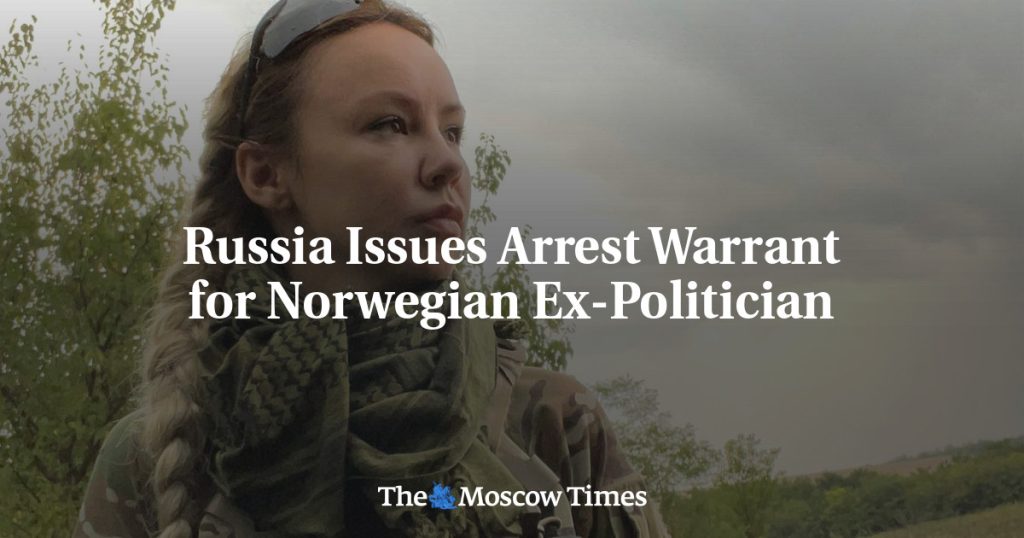Russia has issued an arrest warrant for former Norwegian politician Sandra Andersen Eira, who is currently serving as a medic in the Ukrainian military. The warrant was issued as part of a criminal investigation into her participation as a mercenary in an armed conflict. Eira, who is a member of the International Legion of Ukraine, has been placed on an international wanted list and the Basmanny District Court ruled to place her in pre-trial detention in absentia for two months. She is one of nearly 400 people being sought as “foreign mercenaries” by Russia. Eira served in the representative body of the Sami people of Norway from 2017 to 2021 before enlisting as a combat medic with the Ukrainian military after Russia’s invasion in February 2022.
The case of Sandra Andersen Eira highlights the international nature of the conflict in Ukraine, with individuals from various countries participating in the conflict. Russia’s pursuit of foreign mercenaries reflects its efforts to crack down on individuals fighting against its forces in Ukraine. The arrest warrant for Eira indicates Russia’s determination to prosecute those it considers to be engaging in illegal activities in connection with the conflict. The legal proceedings against Eira also demonstrate the complexities of international law and jurisdiction when it comes to individuals involved in conflicts in other countries.
Eira’s background as a former Norwegian politician adds another layer of complexity to the case, raising questions about the responsibilities and rights of individuals who transition from political roles to military service in conflict zones. Her decision to join the Ukrainian military as a combat medic underscores the personal choices individuals make to support causes they believe in, even at great personal risk. The fact that Eira was placed on an international wanted list highlights the far-reaching implications of her actions and the potential consequences she may face as a result of her involvement in the conflict in Ukraine.
The information obtained from the Interior Ministry database of wanted persons, which includes nearly 400 individuals sought as “foreign mercenaries” by Russia, sheds light on the extent to which foreign fighters have become involved in the conflict in Ukraine. The database provides insights into the efforts of Russian authorities to identify and prosecute individuals from other countries who are believed to be fighting against Russian forces in Ukraine. The inclusion of Eira on this list reflects the focus on individuals who are considered to be actively participating in the conflict, regardless of their nationality or background.
The case of Sandra Andersen Eira also raises broader questions about the role of foreign fighters in conflicts around the world and the legal and ethical considerations that come into play when individuals from one country choose to fight in another. The issue of foreign fighters is not unique to the conflict in Ukraine, and it has implications for international peace and security more broadly. The pursuit of individuals such as Eira as “foreign mercenaries” highlights the challenges faced by states in regulating and addressing the involvement of individuals from other countries in conflicts and the potential impact of their actions on the dynamics of those conflicts.
In conclusion, the arrest warrant issued for Sandra Andersen Eira underscores the complexities of the conflict in Ukraine and the role of foreign fighters in that conflict. Eira’s background as a former politician, her decision to join the Ukrainian military as a combat medic, and her inclusion on Russia’s wanted list all point to the challenges and choices facing individuals involved in conflicts beyond their own borders. The case of Eira also highlights the broader implications of the involvement of foreign fighters in conflicts around the world and the legal, ethical, and security considerations that arise as a result.


